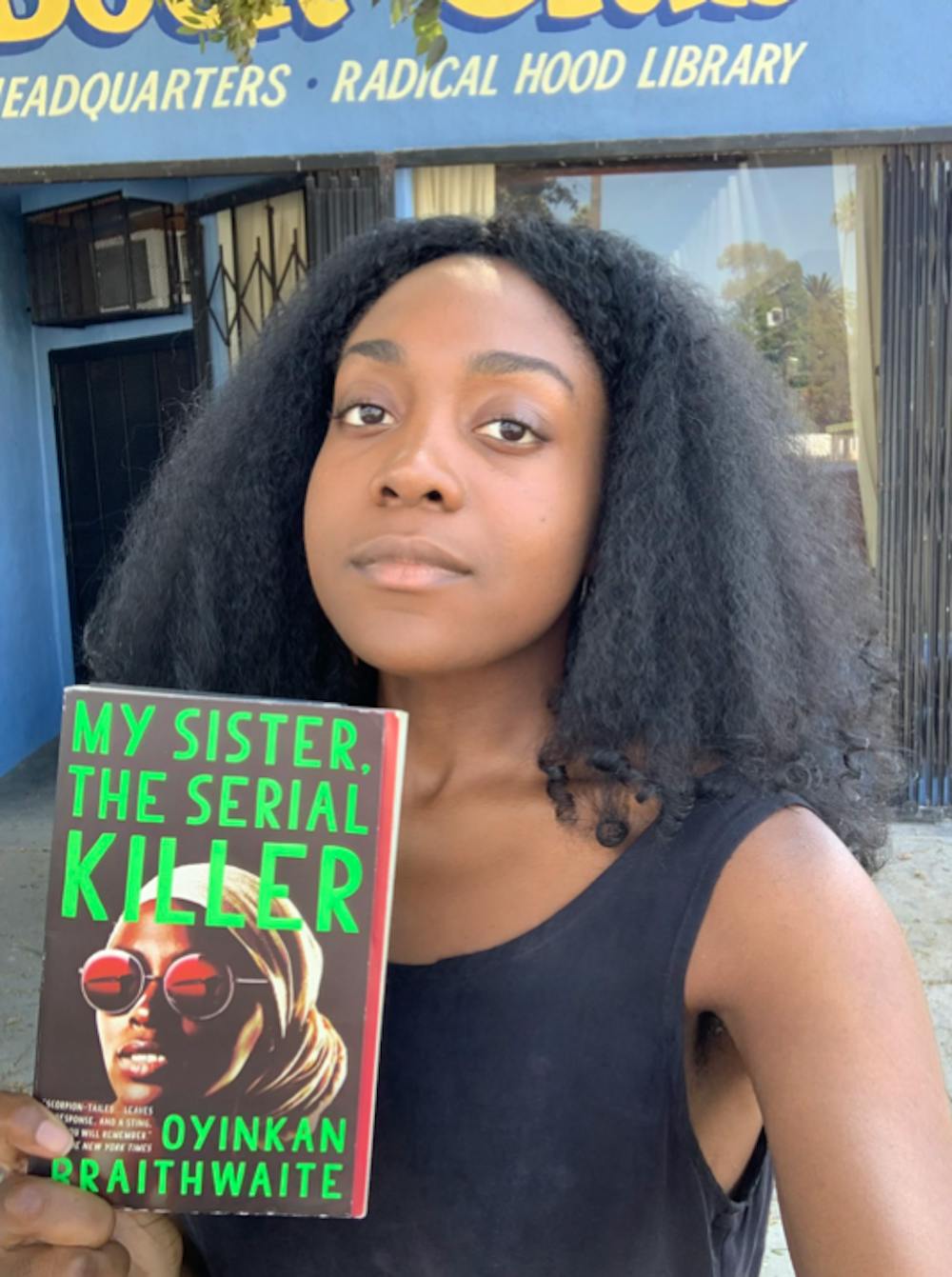https://twitter.com/NonameBooks/status/1445474235397279745/photo/2
On Oct. 2, Chicago rapper Noname hosted the grand opening of the Los Angeles headquarters for Noname Book Club, a project she began in 2019 to uplift communities of color through literature.
Each month, the book club highlights different works from authors of color —ranging from novels to revolutionary texts— and promotes community building, revolutionary thought, and collective liberation.
The headquarters— also known as the Radical Hood Library —serves as a location for various activities, including political education courses, book club meet-ups, free community programming, and serves as a radical neighborhood library.
However, Noname has received criticism on social media for the project. Some argue that a free library is not in the best interest of marginalized communities, and that material needs — like housing and food — should be prioritized. In addition, others believe that the Radical Hood Library is mainly gaining popularity due to Noname’s stardom and that support for the project is a product of celebrity culture.
Noname responded to critics on Twitter, saying that the Radical Hood Library aims to uplift organizations fighting for housing and food justice, not undermine their ongoing efforts. She also added that Noname Book Club is a worker cooperative and not solely run by her.
Many supporters defended the project, highlighting the vital role of libraries in marginalized communities.
While adequate shelter, clean water, and nourishment create the foundation for life, people of color — particularly the Black community — have incessantly been denied access to these necessities. Black people account for less than 15 percent of the total population but make up almost 40 percent of the unhoused population. The work of activists and organizations tackling these injustices does not go unnoticed, and it is crucial in the fight for liberation.
But, the work that Noname Book Club is doing is crucial too.
For some, a library may not seem groundbreaking. However, libraries are a hub for knowledge. They are a place where marginalized people can access radical theory that has historically been kept from them.
Take the story of Martin Sostre, a Black Muslim prisoners’ rights activist.
Sostre —who was jailed twice for almost twenty years— spent most of his imprisonment in the prison library, reading about history, philosophy, and the law. When he wasn’t reading, he attended a study group with other imprisoned members of the Nation of Islam, where they discussed Black history, the Quran, and current events.
After being released for the first time in 1966, Sostre headed to Buffalo, New York, to open the Afro-Asian Bookstore. His store became a space for community education and resistance. During the “long, hot summer” of 1967, the space served as a sanctuary for Black community members, where they protected themselves from police violence.
Martin Sostre is among many revolutionaries who believed that knowledge comes from within the community and is a tool for collective liberation. These are the exact principles that Noname’s Radical Hood Library reflects.
Education allows marginalized communities to connect their lived experiences to language, history, and political thought. These tools provide one with the context to see the complete picture of their positionality in the world, particularly as an oppressed person.
Radical thought should not be reserved for those living in the ivory tower. Yet, for many of us, our first time engaging with radical thinkers — like Frantz Fanon, Assata Shakur, and Cedric Robinson — was likely in a classroom at a predominantly white institution taught by a white professor. This shouldn’t be the norm.
The work of revolutionaries is for our communities more than anyone else. It is for Black people, brown people, and low-income people. This is what a space like the Radical Hood Library accomplishes: it brings radical thought back to the communities where it began.
Support the Radical Hood Library today by becoming a member of Noname Book Club on Patreon and following them on Twitter and Instagram.



